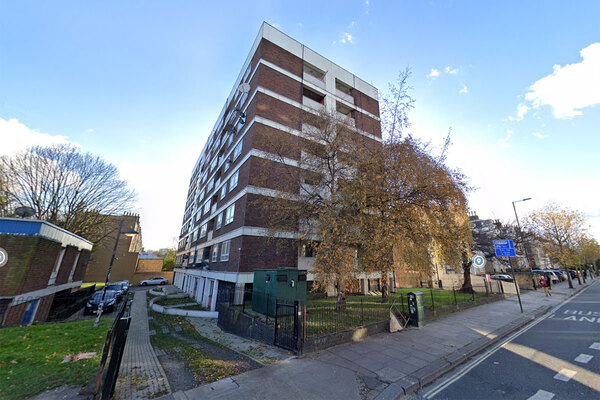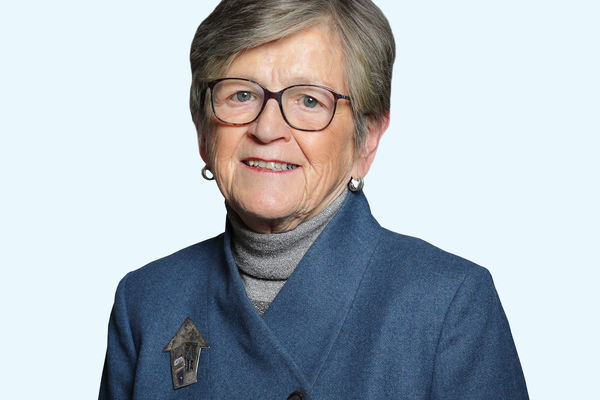You are viewing 1 of your 1 free articles
Home Office asylum change is making ‘significant number’ of refugees homeless, charities warn
A “significant number” of refugees have been made homeless after the Home Office brought forward the cut-off date for asylum support, charities have said.

In a letter to home secretary Suella Braverman and housing secretary Michael Gove, signed by more than 140 refugee and homelessness organisations, including the Refugee Council and the No Accommodation Network (NACCOM), said they have seen a sharp rise in referrals for homelessness support.
This is because people who have recently received refugee status are being driven into “destitution” and rough sleeping.
Before last month, newly recognised refugees were given 28 days’ notice to leave Home Office asylum accommodation they were living in while their claims were being processed.
However, since August, the notice period has been cut to a minimum of seven days, as the Home Office seeks to reduce the asylum backlog and move people on from hotels.
According to the government’s latest statistics, more than 175,000 people are currently waiting for an initial asylum decision.
The charities have argued that the original 28-day notice period was already insufficient since a residence permit can often take up to two weeks to be issued, meaning people often have less than 28 days before they can start making meaningful move-on plans.
In 2022-23, NACCOM members reported being approached by at least 2,261 people who they could not accommodate, a 104% increase on the year before.
Refugees at Home, the largest hosting organisation in the NACCOM network, reported receiving more than three times as many referrals in August 2023 compared with the same period last year.
In the letter, the charities said the change was causing “severe hardship for refugees, as well as placing unnecessary pressures on local authorities who are already facing challenges finding accommodation for other groups”.
They added that “local authorities have not been told of the new arrangements, meaning that they are not ready to respond quickly”.
“The significant number of refugees already made homeless by this change is also placing huge pressures on the voluntary sector, including refugee hosting and housing schemes and mainstream homelessness services,” the letter said.
“The demands are quickly becoming unsustainable. It is already inevitably leading to increased rough sleeping, undermining government targets to end it.”
The authors have urged the government to reverse the decision, ensure that refugees receive all their documentation at one time and issue guidance to local authorities explaining that newly recognised refugees are at risk of homelessness from the moment they receive notification of their asylum decision.
In an accompanying statement, NACCOM said the policy change had “triggered a surge in referrals to providers of hosting and housing accommodation” across its membership network, which is now “operating at capacity” and will be “unable to meet the demand for accommodation that this policy change will create”.
In August 2022, the charity had 72 referrals, excluding Ukrainians. Towards the end of August 2023, it had received 213 such referrals.
Hosting and housing schemes across the NACCOM network accommodated 864 adult refugees (excluding dependents) in 2022-23, a 33% increase on 2021-22.
Bridget Young, director of NACCOM, said: “While we appreciate the urgent need to move people out of hotels and into more appropriate, community-based accommodation, the way to achieve this is not by evicting them into homelessness.”
She added: “People leaving the asylum system need adequate time, targeted support and access to timely information, and resources to enable them to manage the huge transition from asylum accommodation into communities.
“Giving people as little as seven days’ notice will create stress and anxiety and force them to make crisis decisions, with many people having no option but to seek homelessness assistance, or to rough sleep.”
The policy change has placed “unsustainable and unnecessary pressures” on homelessness services, Ms Young added.
“Our members are having to accommodate more and more people who should be able to access mainstream homelessness assistance, which is having an impact on their ability to support other at-risk groups.”
Ms Young urged the government to reverse the decision and called for the introduction of a 56-day move-on period, alongside “substantial investment in affordable housing” that “will significantly mitigate the risks of homelessness that new refugees face”.
Both the Home Office and the Department for Levelling Up, Housing and Communities have been asked for a response to the letter.
Sign up for our legal and regulation newsletter
Already have an account? Click here to manage your newsletters











